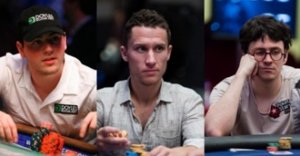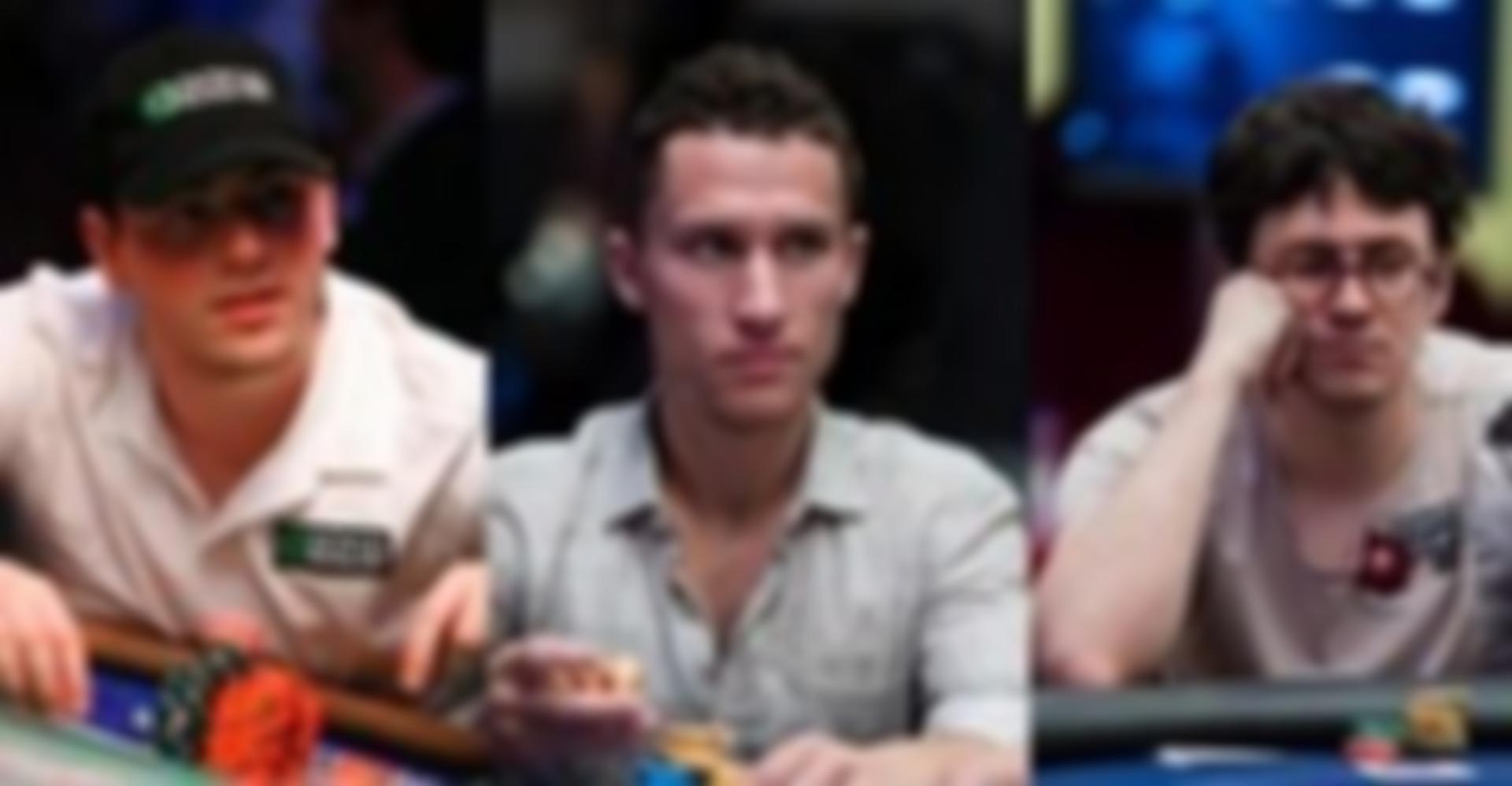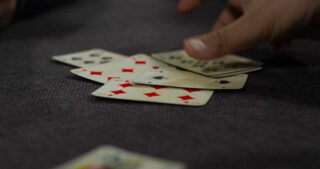Vor einigen Tagen hatte Dani Stern es bereits angekündigt, jetzt ist das offizielle Statement zum Amaya-VIP-Treffen vom 18. Januar 2016 da. Auf Twoplustwo hat Stern nach Prüfung durch seine Anwälte eine umfangreiche Erklärung veröffentlicht, die von Dani Stern, Isaac Haxton und Daniel Dvoress unterzeichnet wurde.

Bei dem Treffen ging es um die ungeliebten Änderungen im PokerStars-VIP-Programm zum 1. Januar 2016, die den Vielspielern massive Kürzungen bescherten. In der Poker-Community hagelte es Kritik, es gab sogar einen 3-tägigen Streik der Spieler.
"Andauernder Vertrauensbruch"
Unter anderem heißt es im Statement: "Höchste Priorität hatte für uns bei dem Treffen die Entscheidung von PokerStars, den Supernova- und Supernova-Elite-Spielern 2016 nicht die versprochenen Benefits zu geben, die sie im Jahr 2015 erspielt hatten.
Wir unterbreiteten PokerStars unsere Sicht, dass das VIP-Programm, so wie es bei PokerStars beworben wurde, eine Art Vertrag zwischen den Spielern und PokerStars darstellt.
Wir sagten weiter, dass die Nichteinhaltung dieses Übereinkommens nicht bloß eine falsche Kommunikation darstellt, sondern ein andauernder Vertrauensbruch ist. Wir haben sie auch daran erinnert, dass es nicht zu spät ist, dies zu ändern.
Obwohl sich die Repräsentanten von PokerStars und Amaya entschuldigten und ihr Bedauern darüber ausdrückten, dass ihre Entscheidungen ein schlechtes Licht auf die Marke PokerStars geworfen haben, konnten wir bei diesem Thema nichts erreichen.
Sie erkannten nicht an, dass es eine Verpflichtung gibt, den SN- und SNE-Spielern die für das Jahr 2015 versprochenen Benefits zu geben. Dies sei im besten Interesse ihres Geschäfts."
"Wir haben unser Bestes gegeben"
Weiter erklärt Stern im Statement, dass es PokerStars vor allem um die Poker-Ökologie gehe, all die Änderungen dienten letztlich dazu, die Spielerfahrung für die Freizeitspieler zu verbessern.
Das Fazit von Stern ist entsprechend düster: "Wir bedauern zutiefst, dass wir den Spielern keine guten Nachrichten von dem Treffen bringen können. Wir haben unser Bestes gegeben und sowohl praktische als auch ethische Argumente gegen die Änderungen vorgetragen. PokerStars will aber keine Änderungen zurücknehmen. "
Statement von Stern, Haxton und Dvoress zum Amaya-VIP-Treffen vom 18. Januar 2016
Daniel Dvoress, Isaac Haxton, and I were invited by Daniel Negreanu to join him at a meeting on Monday, January 18, at the Amaya headquarters in Montreal to discuss the recent changes to the PokerStars VIP program. The Amaya/PokerStars representatives in attendance were: Shawn Nikolaev, Amaya VP of Operations, Eric Hollreiser, PokerStars and Amaya VP of Corporate Communications, Severin Rasset, PokerStars Head of Poker Room Management, and Baard Dahl, also from PokerStars Poker Room Management. David Baazov, CEO of Amaya, also made a brief appearance.
At the start of the meeting, we were required to sign NDAs prohibiting us from discussing specific business and financial data which could conceivably influence trading in Amaya stock. It was not their intent to restrict our ability to discuss the meeting, but they felt that, in order to most effectively make their case, they needed to share confidential information.
We talked for more than eight hours in a conference room at the Amaya offices, a small, nondescript building by the side of the highway on the outskirts of Montreal. This is our joint statement summarizing our thoughts after that conversation.
Going into the meeting, our highest priority was to address PokerStars’ decision not to give the 2016 rewards they had promised to players earning SN and SNE statuses in 2015. We presented our view that the VIP program, as advertised on the PokerStars website until November 2015, was an agreement between PokerStars and the impacted players. We emphasized that failing to honor that agreement is not just a “miscommunication,” but an ongoing breach of trust. We reminded them that it is not too late to make it right.
Although the PokerStars and Amaya representatives were apologetic and expressed regret at the impact that the decision has had on players’ perception of the brand, we did not make any real progress on this point. They denied having any firm obligation to give 2015 SNs and SNEs the rewards they were promised and asserted that they did not feel that doing so would be in the best interests of their business.
As far as we could tell, PokerStars’ goal going into the meeting was to convince us that 1) There are problems with the current “ecosystem,” and that 2) The VIP changes will address those problems. We did feel that they made a compelling case on the first point. They presented strong evidence that something needs to change. We’d like to elaborate further on this, but we can’t say very much about the data they presented without violating the NDA.
However, we did not feel that we were shown convincing evidence that any of the changes implemented so far would directly impact issues with the game ecology or the playing experience of recreational players. They did not offer any evidence to support the (rather counter intuitive) claim that taking more money out of the games would produce a benefit for any players. In fact, the only mechanism by which they even suggested that might be true was that it would free up additional money for Stars to devote to other initiatives such as advertising, R&D and player retention.
We spent some time discussing the finer grained details of these changes and their anticipated consequences across different game types. We expressed concern that high stakes hyper SNG rake was unbeatable without the old 70% SNE RB. We were first shown some dubious statistics which they claimed suggested otherwise. After discussing our objections to those numbers, we were simply assured that they were aware that high stakes hypers were likely to be heavily impacted and planned to monitor those games closely. We were unable to get a clear answer as to whether rake adjustments in this game were under consideration or if, in the worst case, it would simply be allowed to die.
We also discussed the removal of VPPs for high stakes cash. We were, again, presented with a rather unconvincing study on the relative shares of deposits captured by PokerStars and by players winning in these games. In both this data and the SNG data, they tended to present the results of the biggest winners, or ignore the results of players who put in high volume and lost, in ways that systematically overstated how much pros in these games could or did win. Still, we were left agreeing that these are the lowest raked games on Stars and probably capable of withstanding an increase in effective rake. They assured us that PokerStars considers high stakes cash an important part of its offering and that there are no plans to eliminate these games.
We discussed some options for managing rake pricing at high stakes in ways that could increase revenue while presenting less of a deterrent to pros playing against each other and starting games. We suggested reducing rake in shorthanded cash games while increasing it in full games and offering discounts/bonuses for SNGs that run with a lineup of all SN or SNE players. The PokerStars/Amaya representatives did seem interested in these proposals, but ultimately we were left with the impression that they considered them to be more trouble than they were worth.
We deeply regret that we are not bringing back any good news for the players. We tried our best to present both practical and ethical arguments against the SN/SNE cuts, but PokerStars is not willing to reconsider any of the changes.
Feel free to ask us questions. We will try to answer them as best we can, but are unlikely to answer if we think it will come close to violating the NDA.
-Dani Stern, Isaac Haxton, Daniel Dvoress
Dieser Artikel erschien auf PokerOlymp am 24.01.2016.


